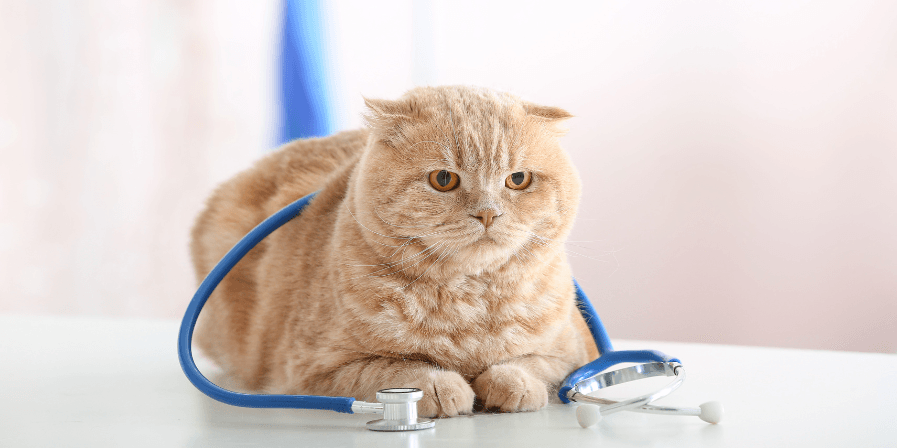Signs Your Cat Has Worms: What to Watch For and Next Steps

Worm infestations in cats are common and can lead to various health issues if left untreated. Recognizing the signs of worms early can help you take prompt action and ensure your cat stays healthy. Here are the key signs to watch for and the steps you should take if you suspect your cat has worms.
Worm infestations in cats are common and can lead to various health issues if left untreated. Recognizing the signs of worms early can help you take prompt action and ensure your cat stays healthy. Here are the key signs to watch for and the steps you should take if you suspect your cat has worms.
Signs of Worms in Cats
1. Visible Worms
• In Feces: You may see worms or worm segments in your cat’s stool.
• Around the Anus: Worm segments can sometimes be found around your cat’s anus, appearing like small grains of rice.
• In Vomit: In some cases, worms can be seen in vomit.
2. Weight Loss
• Despite a normal or increased appetite, your cat may lose weight due to nutrient absorption issues caused by worms.
3. Bloated Abdomen
• A distended or bloated belly, especially in kittens, can be a sign of a heavy worm infestation.
4. Changes in Coat Condition
• A dull, dry, or lackluster coat may indicate an internal parasite problem.
5. Diarrhea
• Frequent diarrhea or soft stools, sometimes with blood or mucus, can be a sign of worms.
6. Vomiting
• Frequent vomiting, with or without visible worms, can indicate an infestation.
7. Scooting
• Your cat may drag its rear end on the floor due to irritation or itching around the anus caused by worms.
8. Increased Hunger
• Your cat may show an increased appetite without gaining weight or while losing weight.
9. Lethargy
• Worms can cause your cat to become lethargic or less active than usual due to the depletion of nutrients.
10. Anemia
• In severe cases, worms can cause anemia, leading to pale gums and overall weakness.
Next Steps if You Suspect Your Cat Has Worms
1. Schedule a Veterinary Appointment
• The first step is to take your cat to the vet for a proper diagnosis. Bring a fresh stool sample to the appointment if possible.
2. Diagnostic Tests
• Your vet will likely perform a fecal examination to identify the type of worms present and determine the appropriate treatment.
3. Administering Treatment
• Deworming Medication: Your vet will prescribe deworming medication based on the type of worms identified. Follow the vet’s instructions carefully regarding dosage and duration.
• Follow-Up Treatments: Sometimes multiple doses are required to eliminate all stages of the worms. Ensure you complete the entire treatment course.
4. Preventative Measures
• Regular Deworming: Follow a regular deworming schedule as recommended by your vet.
• Flea Control: Use flea prevention methods since fleas can transmit tapeworms.
• Clean Environment: Maintain a clean living environment by regularly cleaning litter boxes and disposing of waste properly.
• Regular Vet Checkups: Regular veterinary visits can help catch and treat worm infestations early.
5. Monitor Your Cat
• Keep an eye on your cat for any recurrence of symptoms and report any concerns to your vet promptly.
Types of Worms Commonly Found in Cats
1. Roundworms: These are the most common intestinal parasites in cats.
2. Tapeworms: Often transmitted through flea bites.
3. Hookworms: These can cause severe anemia and are particularly dangerous for kittens.
4. Whipworms: Less common but can cause significant gastrointestinal issues.
Conclusion
Early detection and treatment of worms in cats are crucial for maintaining their health and preventing more serious complications. By being vigilant and seeking veterinary care promptly, you can ensure your cat stays happy and healthy. Regular deworming and preventive measures are key to managing and preventing worm infestations in the long term.
FAQ’s:
1. Why is my cat scooting on the floor?
Scooting can be a sign of irritation or itching around the anus caused by worms.
2. How do cats get worms?
Cats can get worms from ingesting infected fleas, rodents, or soil contaminated with worm eggs or larvae. Kittens can also contract worms from their mother’s milk.
For veterinary hospital in Delhi, Gurgaon and Noida, call 9311560101 or log on to dccpets.in.


 How can we help?
How can we help?